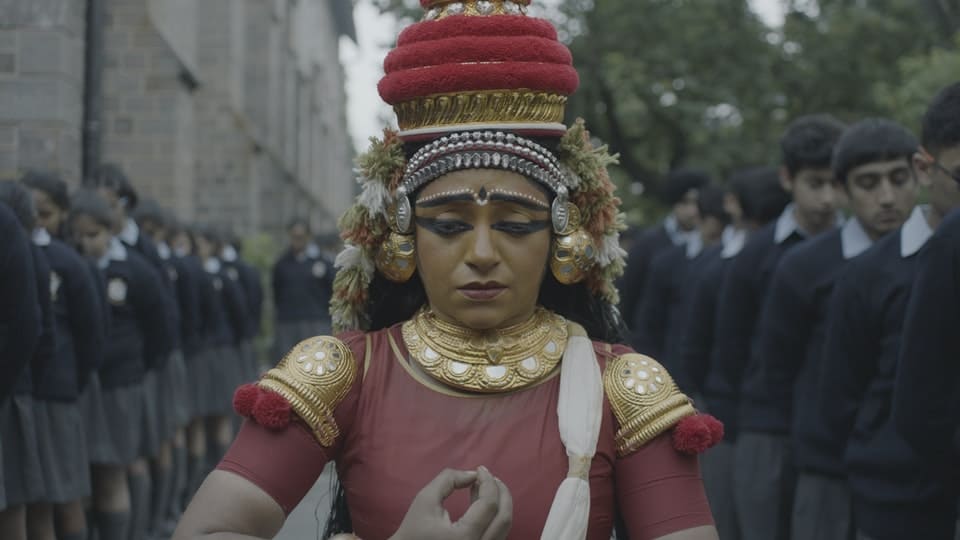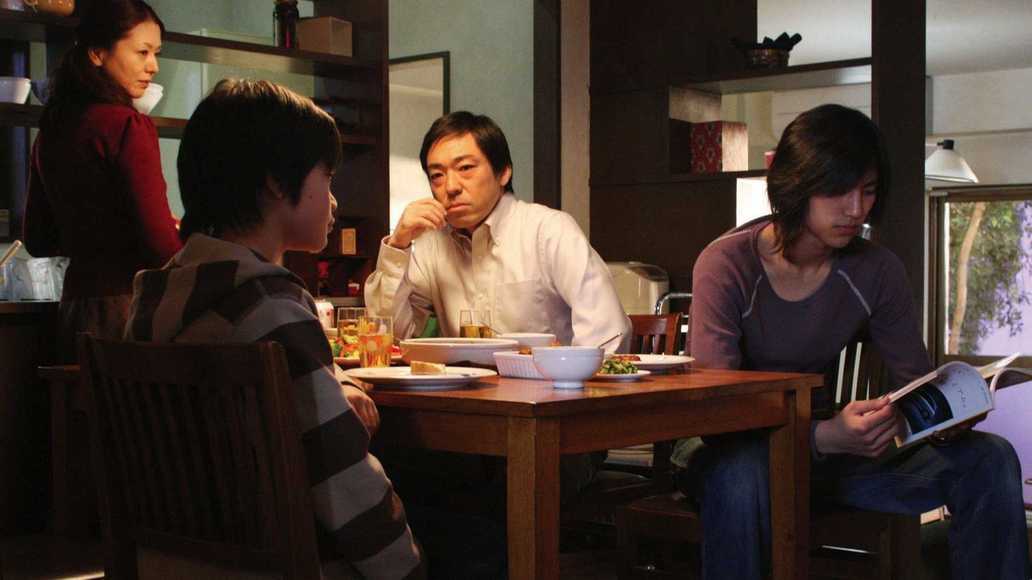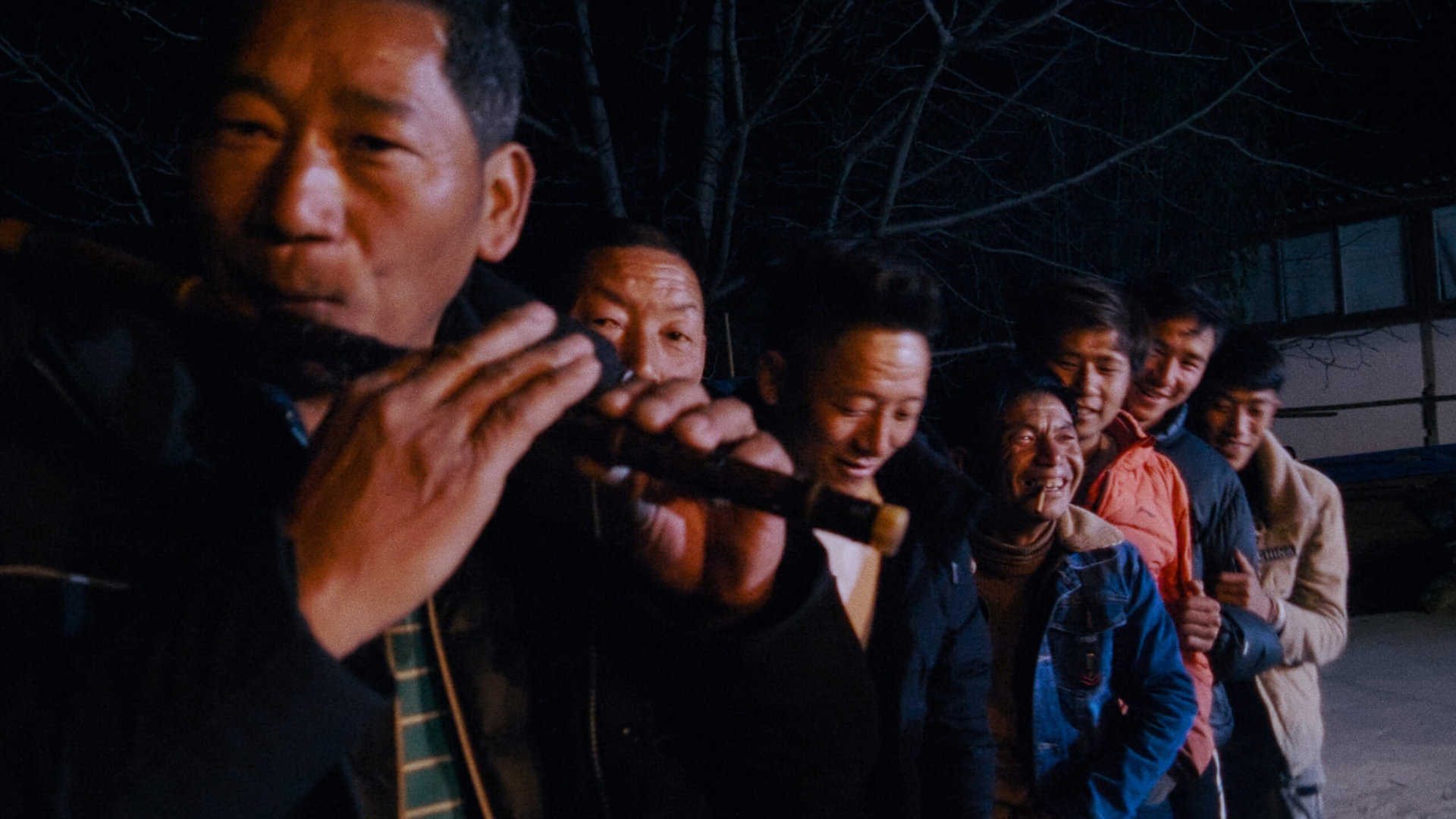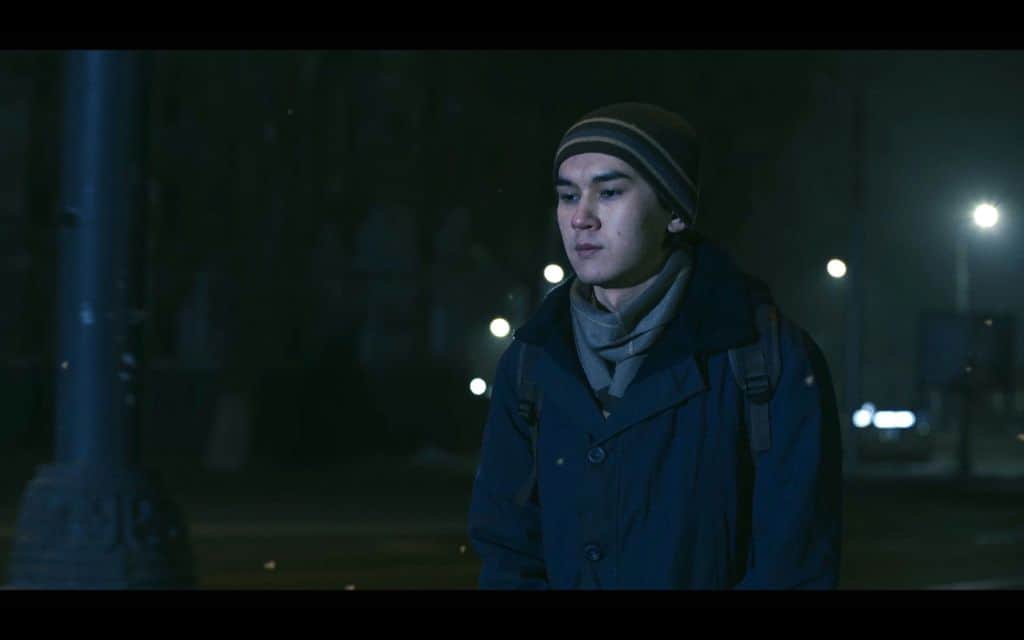Tragic love stories are the staple diet of every culture, mythology and civilization. Lovers themselves can be sinful or just star-crossed, but their common trait is defiance to the order represented by gods, kings and other power figures by the sheer power of love. Details may vary, but the essence remains the same, from Orpheus and Eurydice to Romeo and Juliet to Katniss and Peeta from “Hunger Games”.
The story of Jaivardhan and Tarini, the protagonists of Rahat Mahajan's feature debut “The Cloud Messenger” (or “Meghdoot” in original) might be one such story. The film premiered at the main, Tiger Competition of IFFR.

In the ancient version told in the prologue by means close to the Yakshagana theatre, Jaivardhan (the director Mahajan plays the role himself) and Tarini (Lalita Shivani) were the “yakshas” (spirits) under the rule of the lord Kuber whose brother, the king Dashananan (Peesappilly Rajeevan) wanted Tarini to be his wife and queen. The whole thing did not end well for neither of the lovers, to put it mildly. If there are parallels to be drawn from this story to the titular lyrical poem written by Kalidasa, you are probably proficient in Sanskrit language literature. The connections to the story of the kidnapping of Rama's wife Sita by Ravana, the king of Lanka, from Ramayana will be made later on.
Back to the modern days, let us say the 90s, before the cell phone age, and welcome to an exclusive boarding school somewhere in the foothills of Himalaya. Jaivardhan (Ritvik Tyagi), or JV as he is called by his friends, is a sensitive young lad prone to mischiefs, which puts him in trouble with the school principal, who uses colonial times rituals to maintain the military grade of discipline. But when the new girl Tarini (Ahalya Shetty) arrives to the school, he is completely smitten. Luckily, both of them were selected for and partnered-up in the photography class given by the famed and wise professor Sapru (star actor Raj Zutshi) who is probably the only person there encouraging students to open their eyes. However, the young lovers' happiness is under threat since the masked entity of Dashananan appears from another world to haunt and take Tarini.
The concept of reincarnation or the collision of the mythological and the “real” world could be used here to highlight the universal meaning of love, destiny and overcoming the challenges it poses. The way Mahajan directs his film, with an emphasis on the visual cues how the tradition and modernity mix, and the articular mechanics of the both worlds, is more than fitting for that kind of story. The way he steers his young actors in the desired direction is simply stellar and the attention to details (especially in the “realm” of the boarding school) is quite harrowing, while the fantasy world he imagines also leaves quite a strong impression.
In that regard, it is worth noting that Mahajan also serves as the film's editor, production designer and co-cinematographer (with Anil Pingua), which allows him to control the impact of the film as a whole. Other collaborators should also be commended for their work. The mix between the traditional percussion and the modern, more gentle music on an array of instruments in the score written by Nikhel Kumar Mahajan fits perfectly, and the same can be told for the Kapila Venu's choreography.
However, there is a bit of a problem in the department of dramaturgy, since the prologue could be regarded as a spoiler of sorts, making the film's second act a sort of an expectation of things that are bound to happen. Ultimately, it makes sense in the third act when the realms collide, but the runtime of two and a half hours is going to be felt.
In the end, “The Cloud Messenger” is a fairly accessible film that is both rooted in the Indian tradition and open to the modern cinematic language. It is a competent, meaty debut, but perfect it is not.
















